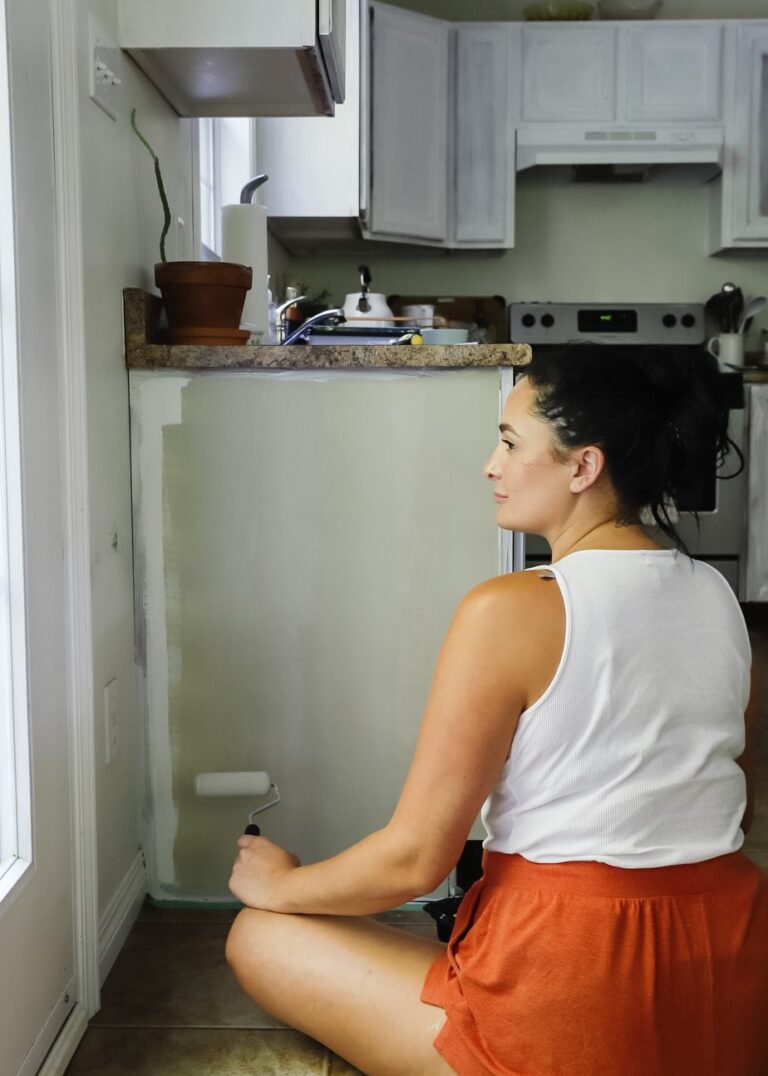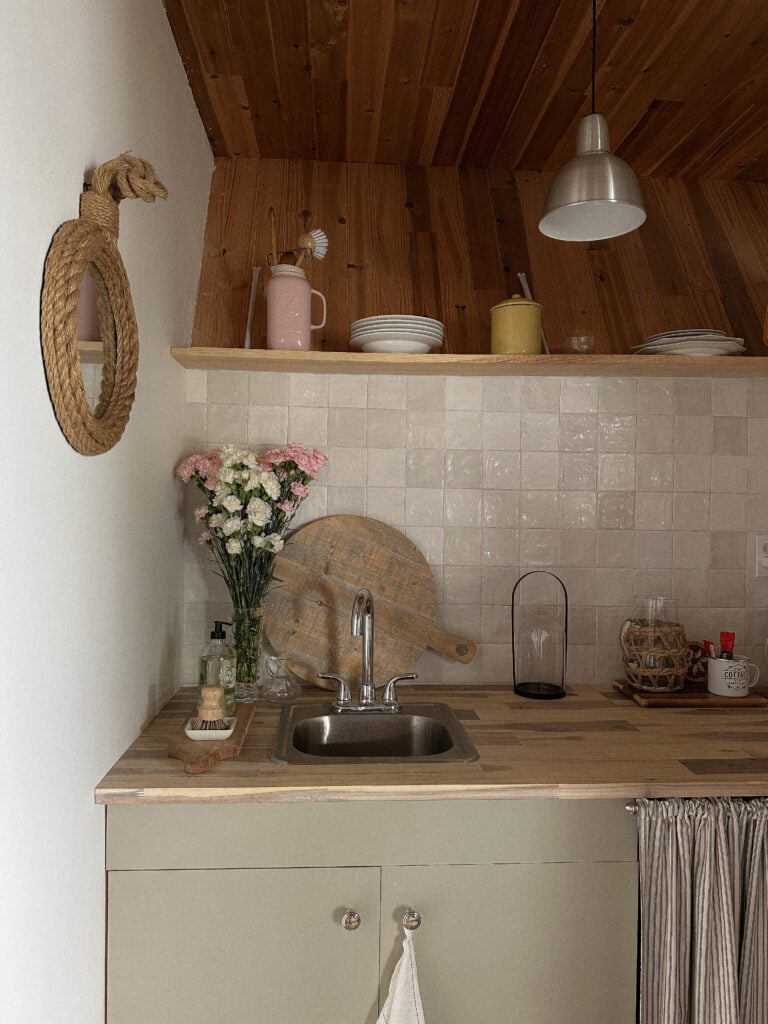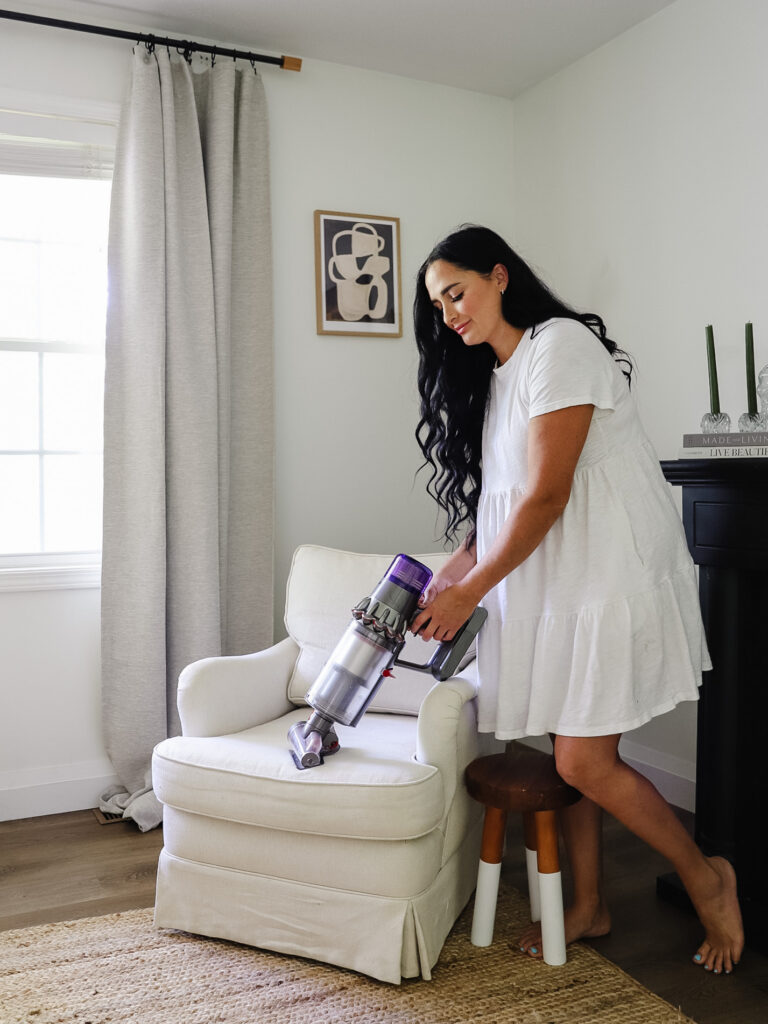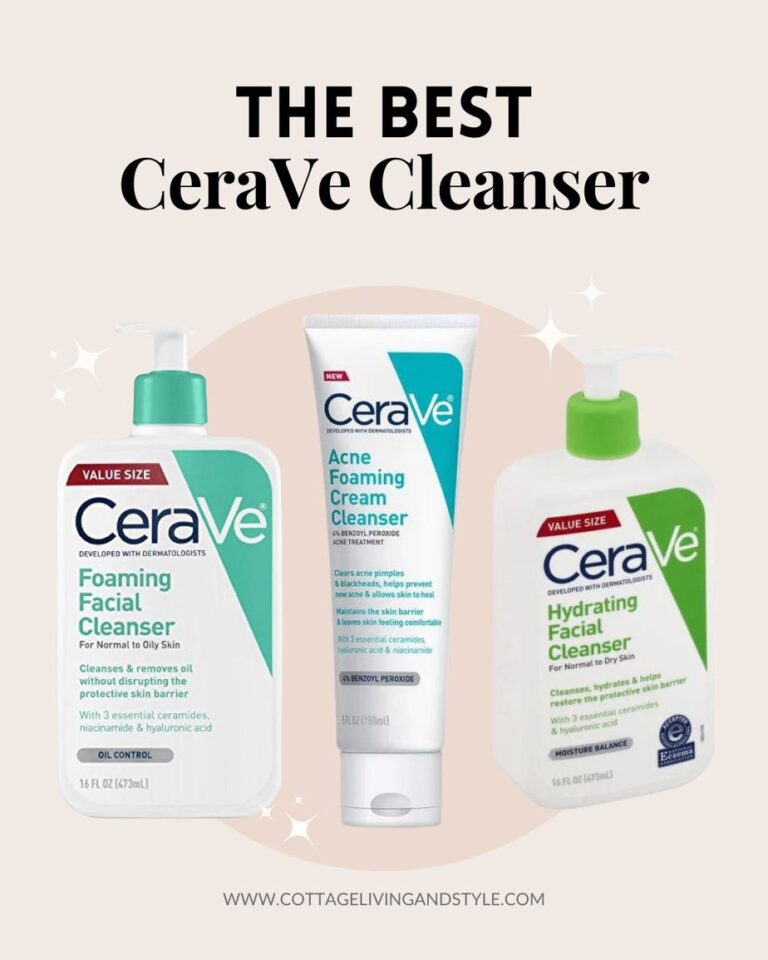How to get rid of ants in your camper or cottage!
Post Summary: How to get rid of any ants in a camper, RV, cottage, or cabin.
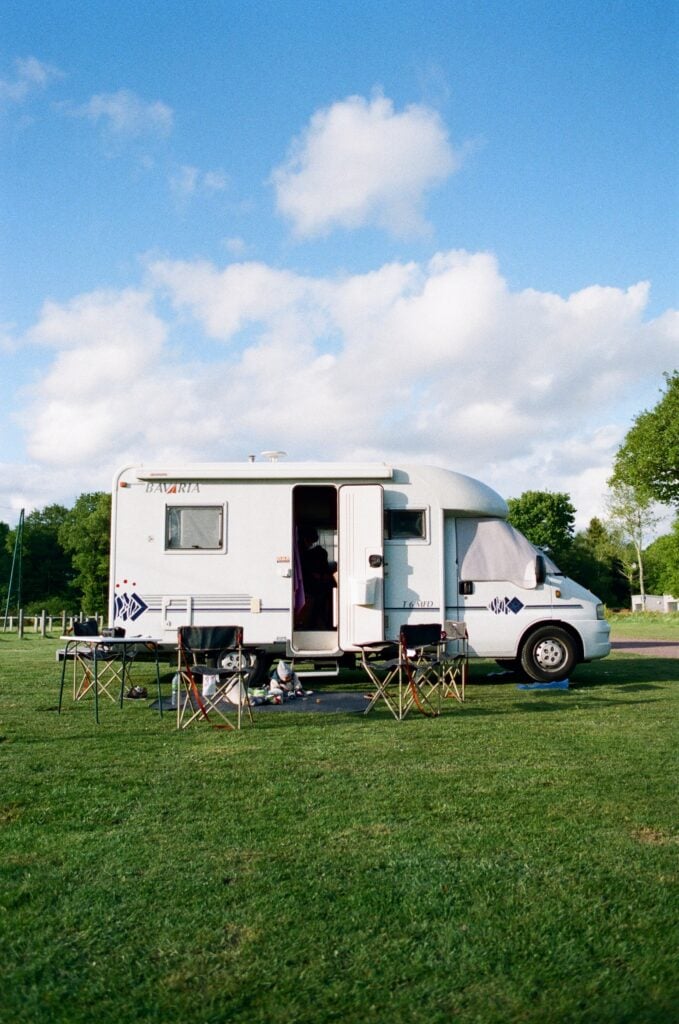
RV life is a beautiful thing, but sometimes, pesky little problems like ants can show up out of nowhere! Ants are common during summer months in all buildings; however, cottages and campers, RVs, and trailers can be more susceptible because of their location too wooded areas. Which is exactly what happened to us! So after doing some research of our own, we’re sharing simple ways to prevent and handle an ant infestation in your RV, camper, or cottage!
Keep reading to find out how to get rid of ants in a camper!
How to Get Rid of Ants in a Camper
Different Types of Ants
Did you know that there are several ant species that you generally see inside a home, cottage, or camper?
Pavement Ants
Because this species is a trailing ant and feeds on a variety of foods, including dead insects, greasy foods, and sweets, it’s very likely for them to show up indoors. They also like to build nests on the sides of houses and garages and can easily enter homes through small openings in windows and doors or through basement walls!
Carpenter Ants
This species is common inside your home because their main food source is sugar or any other sweet liquid or substance. In the summer, if you have a hummingbird feeder, you can often find swarms of them in the area eating the sugary liquid.
Sugar Ants
Sugar Ants are a common ant inside the home, and they easily form in large numbers, in straight lines, and swarm floor or cupboard areas where anything sweet may have been left behind.
Scout Ants
Scout ants can also be found indoors as they often will enter in search of food. Once they find food, they create a set path between the food and the colony so they can continue to return to it. If you see a steady stream of ants, this is likely why!
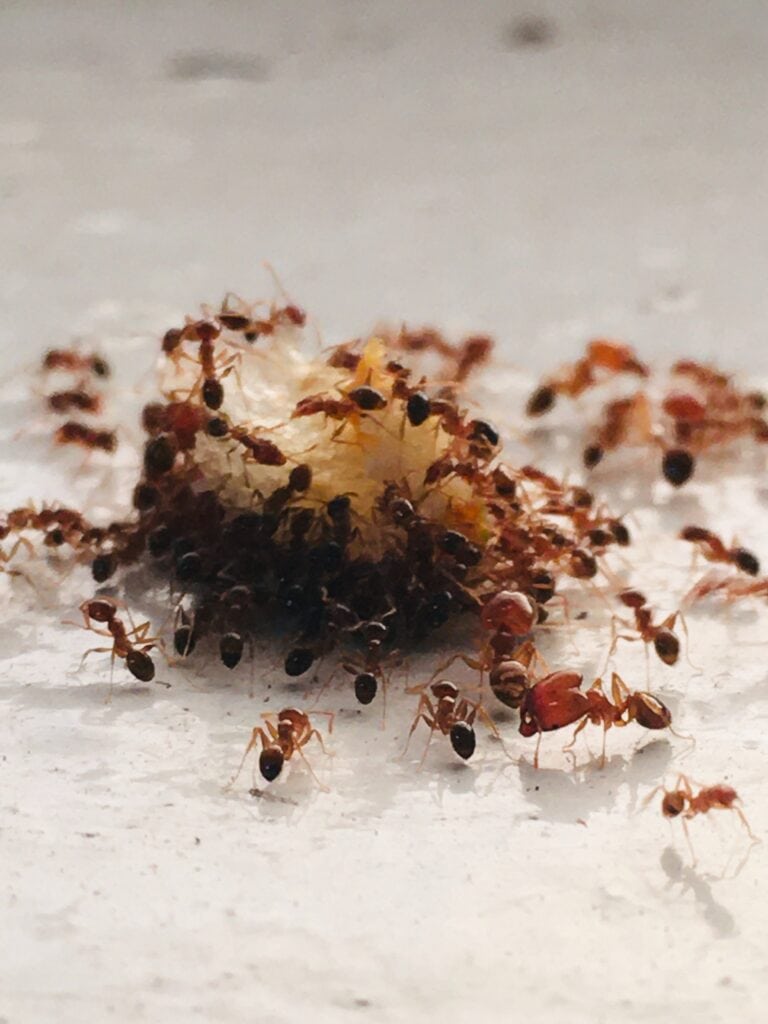
Fire Ants
Fire ants prefer to be outdoors and will usually only come inside if their mound has been destroyed by heavy rain or they need shelter from extremely hot and dry weather.
Black Ants
Black ants are generally found outdoors only. They like to live in open areas of lawns, under stones, bricks, timber, and decaying wood.
Why Do You Get Ants?
Ants typically make their way into homes, cottages, and campers in search of food to bring back to their colony. If a food source is present in your living space (think crumbs on counters, compost, or sticky bits of breakfast syrup on the kitchen table), ants will likely eventually find their way in. Ants often enter your space through cracks and crevices. Ants do not like to nest indoors, so they generally only come inside to find what they need to survive, which in most cases, is food and water. Indoor pantries and kitchen cupboards are prime spaces for ants to gather as ample food sources are generally present. Pet foods on lower levels can also attract ants during warmer months.
How do Ants Get into Campers and RVs?
Ants are smart little creatures and can enter through even the smallest of spaces, which means they can get in from just about anywhere. But the following are good places to start when you notice an infestation:
- Window frames or windowsills
- Your air conditioner
- Any flooring or siding that contains moist wood
- Door frames and screens
- Sewer hose
- Jacks
- Water hose
- power cords
- Locations with recent water damage
- Windows with low-hanging tree branches nearby
Ok, now that we know what types of ants we are likely dealing with and why we are seeing them inside of our spaces, let’s break down how to get rid of them!
How to Get Rid of Ants
There’s no way to actually keep an RV completely sealed from ants, but we have some tricks that will help make your camper less attractive.
Prevention
As with most things, prevention is the first step to an ant-free camper or cottage. Checking the camper’s perimeter, around your windows and door frames, screens, and ceilings for possible entry points is the first thing you should do. If you suspect an ant nest under floorboards or inside of the walls, we recommend seeking the professional expertise of an exterminator as something like a bug bomb may be needed.
Another preventative measure to start is diligent cleaning, especially in the areas mentioned above (kitchen, table, cupboards, etc.) to make sure any scent trail with crumbs or food spills is removed.
The first place ants will go to is a food source when they get inside.
The way you store food is the final preventative measure we want to touch on. Proper food storage inside your pantry is key! Your kitchen area is a dream for hungry ants, thus properly storing leftover spices and snacks inside of your cottage or camper will prevent ants from smelling the food and wanting to go near it. We love these airtight food storage containers and use them at home and at the cottage.
Today’s helpful tips are for mild cases of seasonal ants or a mild ant infestation.
Baking Soda
This kitchen staple is saving the day once again and is the most cost-effective way to remove ants from your home. Baking soda is also a safe way to remove ants, compared to other chemical-based ant killers purchased at your local big box store. Now that we know that ants are looking for a food source inside your home, baking soda alone isn’t going to work. When you mix baking soda with powdered sugar (also known as icing sugar) however, you have the perfect combination for ridding your home of ants. The reason you wouldn’t use regular sugar is that ants are smarter than we give them credit for, and they will sort through the baking powder/sugar mixture to only eat the larger grains of sugar!
If you are wondering why baking soda is the ultimate ant killer, let us break it down for you. Think back to your elementary school days, when you would mix baking soda and white vinegar to create a chemical reaction in your volcano project.
A similar process happens when an ant eats baking soda. It reacts with the digestive enzymes in their stomach, causing a chemical reaction that kills them in the process. Don’t worry, the ants in your home will not explode!
Cornmeal
If you don’t have baking soda on hand, a sprinkle of cornmeal in areas where ants have been seen will attract them back. Ants have difficulty digesting cornmeal, so when they eat it, the cornmeal becomes lodged in their digestive tract, and they die.
Essential Oils
Essential oils have so many benefits, from stress relief to helping fight off colds and flu cases. They also are fantastic at getting rid of ants, indoors and are one of the few natural repellents available. The top oils for ant removal include:
- Cinnamon Oil
- Lemongrass Oil
- Clove Oil
- Peppermint Oil
- Thyme Oil
For our recent ant removal attempt, we used peppermint oil. Ants hate the smell of peppermint so it’s a great way to deter ants from coming into your home in the first place. To prevent this all you need to do is add a few drops of peppermint essential oil into a spray bottle, fill the bottle with water and spray in areas around your home where you are starting to see ants.
If you know where the entry points are for the ants or are seeing them in a consistent location, add 5 drops of one of the oils above onto cotton balls and place them in those spaces. Repeat and replace the cotton balls every 2-3 days until the ants are completely repelled from the area.
Black Pepper
Another natural way to remove ants is with black pepper. For this method, sprinkle black pepper where you see ants congregating to deter ants from coming back. If you mix black pepper into a spray bottle with water and spray directly onto live ants, the mixture will instantly kill the ants. If you see ant activity starting in any location inside your home, you can also mix flour and pepper and sprinkle in the area.
Boric Acid Powder
Boric Acid Powder, known to many as Borax, is an acidic white powder that can be found in many grocery stores. When used in a way similar to the baking soda method above, the ants that walk through the powder will groom their legs to remove the dust particles, which in return, causes them to consume the product. Once an ant consumes the Borax, it will die within 24-48 hours. If you are working with a large colony of ants, it can take up 2-to 4 weeks to fully exterminate an entire colony.
Dish Soap
Did you know that dish soap can also be used to kill unwanted ants inside your home? ?his method is simple. Mix 4 tablespoons of dish soap with 1 gallon of water. Spray directly onto the live ants you can see. This method will only kill ants you can see, as the ants do not consume the mixture and take it back to their nest. Dish soap is a great way to kill an entire nest or colony outdoors. Pouring a mixture of hot water with dish soap directly into the ant hill or their nest will virtually kill all living ants inside within minutes.
Terro Liquid Ant Baits
If you are looking to purchase one item to remove ants, instead of following some of the other remedies above, we recommend checking out Terro Liquid Ant Baits. This inexpensive and simple-to-use product will effectively battle indoor ant infestations. This product guarantees their product will kill the ants you see and even those you don’t. Borax is the main ingredient inside of the bait, which like the baking soda method, will cause a negative reaction inside the ants’ stomach, and killing it in the process. These little baits will also kill several other kinds of critters you may be dealing with.
A note of caution – If using this method, be sure to place the bait in a location that cannot be accessed by your pet as these baits contain harsh chemicals.
A Recap on How to Remove Ants From Your Camper or Cottage
Prevention
Ensure your home is a clean space. Quickly clean up crumbs and sticky messes to prevent ants in the first place.
Natural Remedies
Peppermint essential oil is a well-known way to get rid of ants without chemicals. Other non-chemical-based options include dish soap, baking soda and cornmeal!
Call a Professional
For serious ant infestations, affecting multiple rooms or spaces or that you cannot handle on your own, a professional should be called sooner rather than later to stop the ants.
So, what do you think? Are you feeling confident and ready to take on these little invaders?

